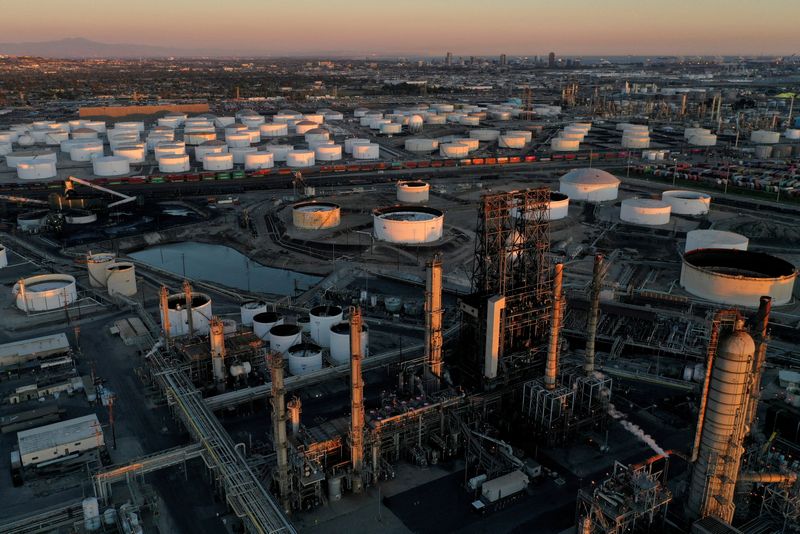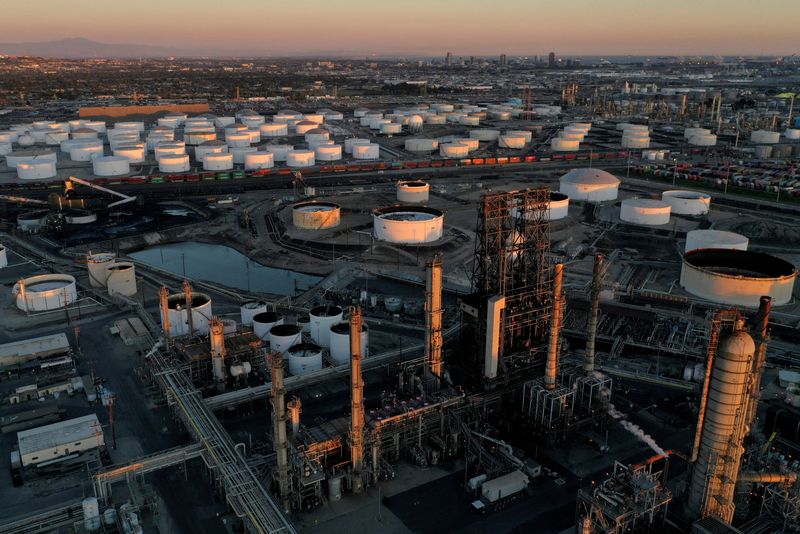
By Georgina McCartney
HOUSTON (Reuters) -Oil prices rose on Wednesday after a jump in U.S. refining activity last week prompted a bigger draw than expected from gasoline and crude inventories.
Brent futures were up 59 cents, or 0.7% at $85.25 a barrel at 12:52 p.m. EDT, after falling 1.3% the previous session.
U.S. West Texas Intermediate (WTI) crude was up 79 cents, or 0.97%, to $82.20 a barrel, after falling 1.1% the previous session.
U.S. crude futures rose by more than $1 per barrel earlier in the session.
U.S. crude inventories fell by 3.4 million barrels to 445.1 million barrels in the week ended July 5 as refiners ramped up processing, the U.S. Energy Information Administration said, far exceeding analysts’ expectations in a Reuters poll for a 1.3 million-barrel draw.
Gasoline stocks fell by 2 million barrels to 229.7 million barrels, much bigger than the 600,000-barrel draw analysts expected during U.S. Fourth of July holiday week.
“More than anything the EIA data seems to be the driving force right now for higher prices,” said Phil Flynn, analyst at Price Futures Group.
Both crude futures contracts had ended the previous three sessions lower on signs that the Texas energy industry came off relatively unscathed from Hurricane Beryl.
Oil and gas companies had restarted some operations on Tuesday, and ports along the Texas Gulf Coast, which had shut in ahead of the hurricane, were reopening with some restrictions on Wednesday.
Refineries and offshore production facilities saw limited damage from the storm and have largely returned to normal operations, easing concerns of a supply disruption.
Meanwhile, geopolitical risk did little to drive up prices on Wednesday, analysts said, with investors somewhat fatigued over discussions about a ceasefire in Gaza and the war in Ukraine, said Tim Snyder, economist at Matador Economics.
“We see news stories out there that are having little impact on the market, which means the market is discounting those,” he added.
In the Middle East, Hezbollah chief Sayyed Hassan Nasrallah said Hamas was conducting Gaza ceasefire talks with Israel on behalf of the entire “Axis of Resistance.” If a deal was reached, Hezbollah would stop its operations with no need for separate talks, he added.

Hezbollah began firing at Israeli targets on the border in support of Palestinians after its ally Hamas launched the Oct. 7 attack on Israel that precipitated the war in Gaza.
An easing of geopolitical tensions would weigh on crude futures.
This post is originally published on INVESTING.




